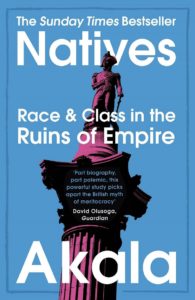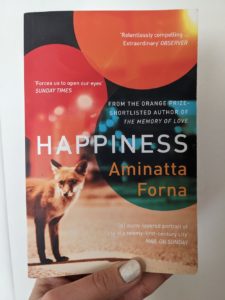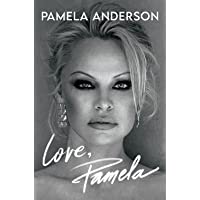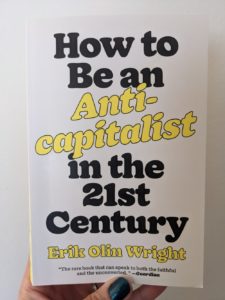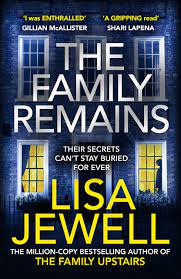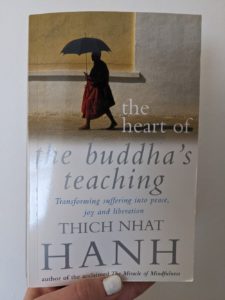Natives by Akala
Written by Ashley Kelmore, Posted in Reviews
Best for:
White people living in the UK; anyone who likes to suggest that there isn’t racism or classism in the UK.
In a nutshell:
Journalist and rapper Akala discusses racism and classism in the UK and the places it colonized set against the memoir of his life growing up as someone racialized as Black in the UK.
Worth quoting:
I listened to the audio book so no specific direct quotes, but I can say that I did take a lot of notes in my notes app.
Why I chose it:
Growing up in the US I was barely taught anything about the history of racism and the current racism there. And definitely learned nothing about racism in the UK.
What it left me feeling:
Better educated
Review:
This book is part memoir and part well-researched political discussion of race and class. It isn’t so much prescriptive — Akala isn’t writing a book about how we end race and class disparities in the UK, though he definitely touches on how things can be improved — as it is descriptive. It comes across as extremely well researched, and the arguments puts forward (especially when pointing out hypocrisy) make sense.
Akala was born to a white mother from the outer islands of Scotland and a Black father from the Caribbean. He discusses the education he received in Camden, a part of London, and the racism he encountered from teachers there. He also discusses what is was like as a Black teen, and what he and some of his peers went through, including interactions with racist police and less-than-legal activities.
These stories of his youth and young adulthood serve to tell us more about his life experiences, but also serve as jumping off points to discuss broader political and sociological issues. He touches on so many topics, from the abandonment of the Windrush generation, to the fight against apartheid, to society’s desire to only focus on racism when it’s the type typically engaged in by poor people (as opposed to the institutional racism of the wealthy ruling class).
He has a great chapter debunking a lot of absurd thoughts and comments, such as playing the ‘race card,’ the concept of going back where they ostensibly came from, identity politics, and freedom of speech. He always backs these comments up with data; for example, did you know that in 2017, Jamaica was 8th in the world for press freedom, while the UK was … 40th?
He also talks a lot about the assumptions around which countries have racism, and what that racism looks like. For example, there tends to be rumblings in the UK that the racism here is not as bad as in the UK, which I’ve heard myself as someone from the US living in the UK in 2020 when police murder of Black people was getting news coverage. There was a lot of ‘it’s not as bad here’ comments from white British people. At the same time, Akala offers a nuanced take about how racism manifests itself given the different histories in different countries.
There’s so much more I could go on about, and I won’t because the book isn’t prohibitively long so I think you should just go read it. But I did want to mention some areas of inconsistency / hypocrisy that Akala brings up a couple of times. One is Black on Black crime. Specifically, why a Black person stabbing another Black person in London gets that label, but a gang fight between two white people in Glasgow, or the entire Troubles in the North of Ireland isn’t considered or referred to or brought up as white on white crime. Another is how we can support and celebrate Mandela for ending apartheid while also celebrating those who helped enact it (Churchill) or denigrating others who early on were vocal in opposing it (Cuba and Castro).
I enjoyed hearing the author read the book in his own voice, but I think I might pick up a physical copy too so I can have it to easily refer back to.
Recommend to a Friend / Keep / Donate it / Toss it:
Recommend to a Friend
